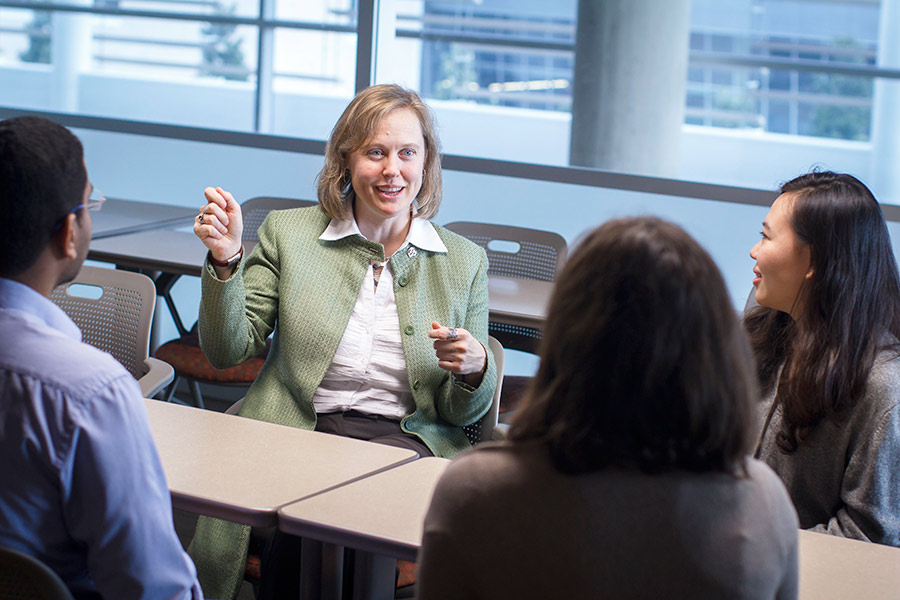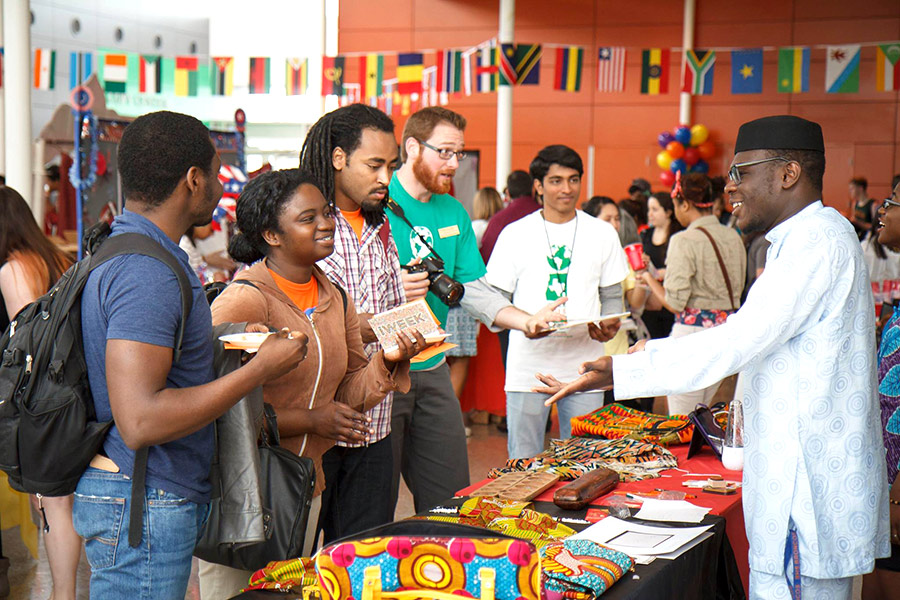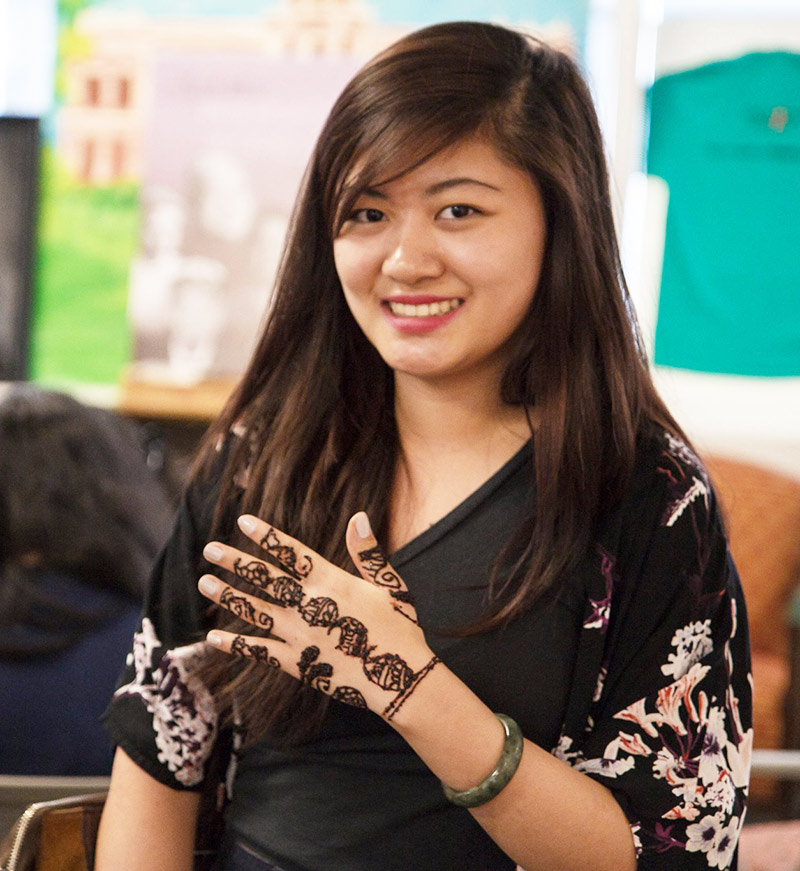
Cristen Casey, assistant vice president of international programs, heads up the recently organized International Center, which serves the more than 5,500 international students from 100 countries who call UT Dallas home.
Cristen Casey grew up in small-town Indiana without a lot of cultural diversity in her life. But for as long as she can remember, she has been particularly drawn to people from other countries.
Her best childhood friend was French Canadian. Her first romance was with a Briton. Her major was in French literature at Kalamazoo College, where 96 percent of the student population typically studied abroad.
Casey went on to complete a Fulbright teaching fellowship in Normandy, France, and also worked with Habitat for Humanity in Honduras.
It’s no surprise, then, that she sees her role at UT Dallas as a dream job. Casey, assistant vice president of international programs, heads up the newly organized International Center, a central point of contact for international programs and services.
“Fostering connections between people from around the world has been important to me for as long as I can remember,” Casey said. “My personal and professional experiences have demonstrated how this contact can lead to long-term friendships, research relationships and exchange of ideas. It also allows people to get out of our comfort zones, and to become more creative and resourceful by seeing the world in new ways.”
The International Center, on the third floor of the Student Services Building, is a one-stop shop for the more than 5,500 international students from 100 countries who call UT Dallas home, providing immigration advising, orientation programs, and cultural and educational events.

The International Center sponsors campus programs such as International Week, which was held March 30-April 3. During International Week’s Passport to the World, Mark Nwokocha shared Ghana’s culture, clothing style and games with visitors.
The center was reorganized last spring to consolidate services previously provided by the International Student Services Office (ISSO) and Office of International Education (OIE), and to add strategic components to better serve growing international student population at UT Dallas. It also provides programs and services for those UT Dallas students, faculty and staff who study, work, present and do research abroad.
Since Casey started her career at UT Dallas in 1997 as an international student advisor, the number of international students has increased 10 to 20 percent each year. By 1999, Casey had quickly risen to become director of the ISSO.
The ISSO is now just one component of the International Center, which also houses Intercultural Programs, Education Abroad, International Partnership Development and International Risk and Safety.
Josephine Vitta, the new director of the ISSO, focuses on advising and processing immigration documents for international students, including work authorization and maintenance of immigration status.
“International students invest their hopes and dreams in coming to UT Dallas to study. We provide the immigration support services to help them meet their academic goals,” Vitta said.
Lisabeth Lassiter directs the Education Abroad component along with Intercultural Programs.
The Education Abroad team oversees all activities associated with studying abroad for credit, internship and service learning opportunities. This includes faculty-led programs, international student exchange programs and study abroad scholarships.

Isabella Yang was one of the students who received a temporary, personalized henna adornment during International Week.
Intercultural Programs provides seminars and workshops on campus to help enhance cultural competence for new international students. Orientation programs are held year-round. In August, Lassiter’s team led two or three orientations each week for burgeoning numbers of students from countries such as Taiwan, Korea, Iran and Vietnam.
But Lassiter also wants to help students from the U.S. to become more culturally literate by encouraging them to participate in programs such as International Week and International Education Week. She said everyone’s perspective is enhanced by having diverse international students on campus.
“I always wanted to travel but never had the means. Now the world comes to me,” Lassiter said. “It sounds cliché, but I love learning about other cultures and seeing them discover new things.”
International Risk and Safety assists all participants in international education, both students coming to the U.S. and UT Dallas students studying abroad. The office helps faculty, staff and students traveling internationally on University business, and international students who have emergencies while in the U.S.
Assistant director Imperio Shanks said the risk management area provides support and resources such as pre-departure training. She knows where people are and how to contact them through the use of the International SOS Travel Tracker software program, adopted as a centralized database within the UT System.
Rodolfo Hernandez directs International Partnership Development, which helps facilitate and develop university-level international affiliation agreements and partnerships for student exchange programs.
“We are working with faculty to enhance geographic and intellectual diversity, and to be in close alignment with UT Dallas’ strategic goals,” Hernandez said.
A strategic approach will enable the International Center to better support UT Dallas’ institutional goals of increasing student population and meeting research needs, Casey said.
“Being a global institution means focusing our attention on those areas that will move us forward,” Casey said. “We are positioning ourselves to best support the success of UT Dallas’ internationalization goals.”